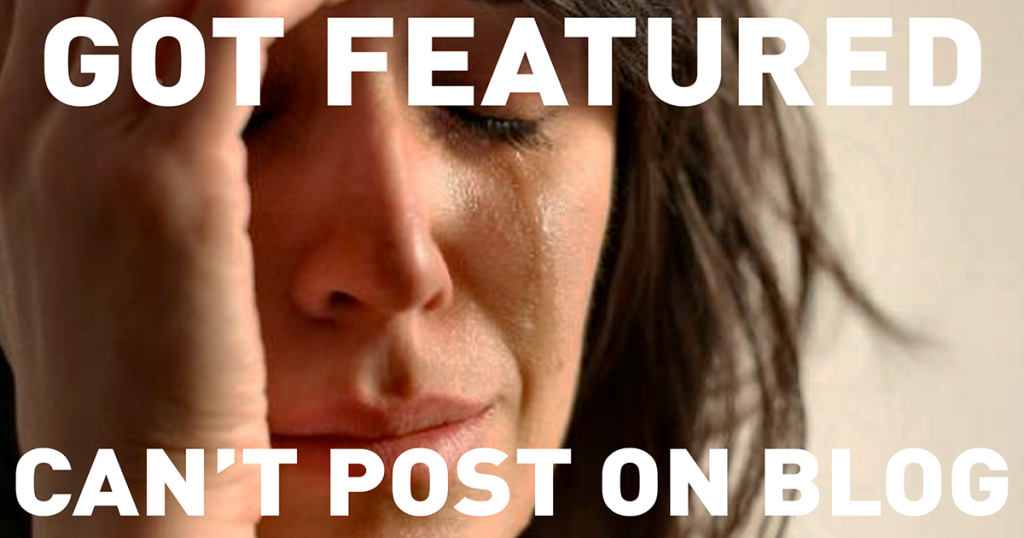That incredible rush you feel upon seeing yourself published in the latest edition of The Straits Times is something not everyone is able to experience in their lifetime – well, unless you’re a celebrity or a minister.

If you’re lucky enough to have gotten that shot at fame, chances are you’d share this fantastic piece of news with all your friends and followers on your various social media accounts, and finally post it up on your website.
Days later, while you are emptying your inbox, you find an email addressed to you from the publisher of your article. Must be a followup, you think to yourself. However, after reading the contents of the mail, you realise to your horror that you had been sent a bill instead!
What Went Wrong?
By definition, you are infringing on the copyright of the publisher, which in this case is Singapore Press Holdings. You can search for the various Copyright Acts on the Singapore Statutes website here, or a more foolproof version at iPOS here.
On their website, SPH have explicitly stated that before you are able to republish any of their articles or photographs, you will be required to fill out a form for permission to reproduce their content.

Upon further digging around, I found this PDF document, with the exact breakdown of the costs involved to reproduce an SPH content on a website, or on print.

The grand total? You will need to fork out 642 Singapore Dollars for the right to to use that article.
1. $642 (including GST) per article/year/URL site for website hosting.
2. $642 (including GST) per article per usage for print reproduction.
However, this hefty price is just for that article alone, and there are additional charges that will be levied – as you will find out in the article.
Well, at least they were kind enough to let us know that Goods & Services Tax (GST) is inclusive in the price.
So Why Am I Mentioning This Now?
In the past week, I’ve gotten to know of someone who has entered into a predicament with SPH. Let’s call her Ms. M.
Ms. M was ecstatic to know that she had been featured on The Straits Times, and like many others, wanted to share this article with everyone she knows. Ms. M then proceeded to take photo of the article, which she later posted onto her blog.
Sounds legitimate enough. Ms. M took a photo of article, so the photo belongs to Ms. M, right?
Not so much. SPH still considers that an infringement.

Remember the part about additional charges?
It seems that on top of the $642, there is still a ‘processing fee’ of $216. This brings the total amount payable to $858 (GST included of course). Oh, and the $216 must be paid regardless of whether or not you take down the article or photograph from your website.
Personally, as someone who came from an arts and design background where plagiarism is strictly frowned upon, these rules are not surprising.
What is astonishing to me, though, is that there are actually people who are still unaware that such a law exists. A quick survey with those around me seems to confirm that too.
The Twelve Cupcakes Saga

I feel that the entire saga between Daniel Ong and SPH was well documented enough on social media that it has reached the level of being an unforgettable lesson for both businesses and individuals.
Daniel, during the whole ordeal, had vehemently came out to protest on his Facebook page regarding the entire issue, and after SPH contacted him, posted a response again. In them, he made valid points in that more could be done to educate the public on the Copyright Act.
If you have noticed, there seems to have been some inflation since 2012. In his post, Daniel stated that he was being charged $535 per article, and a processing fee of $214.
Learning Points
IP and Copyright lawyers would often advise the public to just post up a link to the online version of the article instead.
Another way is to simply share it from the publications’ Facebook pages onto your own personal profiles if need be – but just don’t do it somewhere within the public domain, such as on a blog or website.
As someone who has appeared in the papers before, I assure you this is one touchy issue that you would want to avoid at all costs.











